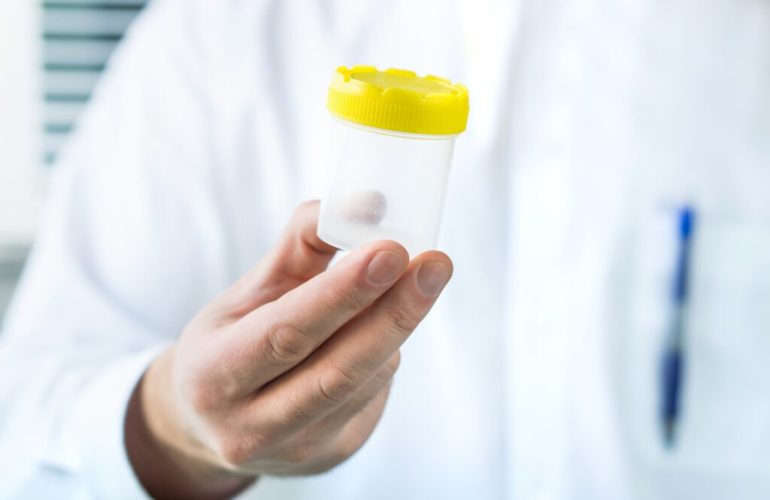Male Infertility Causes and Treatments
The cause of about 35-40% of the fertility problems among couples are by infertile conditions present in men today. There are a number of treatment options available for male infertility.
The sperm must be healthy and strong in order for it to reach the female’s egg and fertilize. The sperm of a man can tell a lot about his health. The past two decades, the overall sperm count for men around the world has declined by up to a third. The decline in the sperm count is because of lifestyle factors such as; consumption of alcohol and tobacco, being overweight, lack of sleep and exposure to chemicals in daily life. A slight modification in a man’s lifestyle can show a big change in the health of the sperm.
To increase fertility, a man should make sure he has a happy and healthy lifestyle. It takes two to make a baby. Although a woman will carry and deliver the child, a man also has a leading role in pregnancy. For fertilizations to occur, his sperm must be healthy and strong enough to reach and penetrate the woman’s egg. If you and your partner are planning a pregnancy, you might be wondering about the health of your sperm. Understanding the various factors that affect male fertility and then consider steps needed to help your sperm become top performers.
The Male Infertility
When men ejaculate, the purpose of their semen is probably the last thing on their minds, but it can serve a very important role in spotting changes in your wellbeing. Usually, semen is a white or off white fluid. Any changes in color or smell could be a sign of something more serious. Semen will usually have a chlorine type of smell; a strong foul smelling ejaculation could be a sign of an infection.
The amount of semen produced varies from man to man. However, recurring low levels of watery semen could indicate a condition called retrograde ejaculation and though not harmful, it can cause fertility problems. If you spot any of these changes you should contact your GP or the Urologist. As the condition of a man’s sperm can tell a lot about his general health.
Constantly looking for health markers can help predict their risk for chronic diseases, such as diabetes, heart disease, and cancer.
The surprise of the majority of men to find out that their semen is an invaluable tool when it comes to gauging their overall health. That’s right, a man’s semen can say a lot about his health. In the past two decades, overall sperm count for men around the world has declined by up to a third.
The decline in the sperm count is mainly to the following factors: Hypertension and High Blood Pressure. The diagnoses of around 80 million adults in the United States have been with high blood pressure, which can lead to potentially life-threatening complications if left untreated, including kidney damage, heart attack, and stroke.
A Study About Male Infertility Causes
A recent study conducted at the Stanford University School of Medicine found that the quality of a man’s semen could indicate his risk for hypertension. Research that included 9,387 men between the ages of 30 and 50 revealed that men struggling with fertility tend to have an increased risk for certain diseases of the circulatory system, including hypertension and heart disease.
The relationship between semen quality and hypertension was tied to around 15 percent of all genes in the human genome that are connected to reproduction as well as other bodily systems. Cigarette Smoking and Overweight/Obesity in Men – Evidence has consistently shown that smoking and obesity directly affect fertility in men. One study published in the journal Human Reproduction showed that a man with a greater body mass index (BMI) often has a lower sperm count and poor semen quality compared to a man with a lower BMI.
Overweight and obese men have worse sperm quality than men of a healthy weight. Being overweight or obese can also cause hormonal changes that reduce fertility and make men less interested in sex. Men who are very overweight are also more likely to have problems getting an erection. Together, these factors reduce the chances of men who are overweight or obese fathering a child.
Cigarette smoking has a significant influence not only on sperm count, but the percentage of active sperm and sperm morphology. The semen parameters in infertile men were significantly different from that of fertile men. The influence of body mass index on semen parameters was obvious except in percentage of immotile sperms. These results suggest that the chemical agents or mutagens may affect male reproductive via direct effect on the spermatogenesis.
Male Infertility – Bisphenol A (BPA): BPA Exposure
Fears over bisphenol A (BPA) exposure have resulted in the BPA-free movement. Researchers found that the men but not women with high phthalate concentrations experienced a 20% decline in fertility. It takes longer to get their partners pregnant than men with lower concentrations. BPA, an endocrine disrupting chemical with artificial estrogen properties, has been tied to disruptions in the hormonal system. Researchers from Washington State University recently discovered how BPA can increase a man’s risk for infertility.
If a couple is having trouble getting pregnant, they should try to minimize the male’s exposure to phthalates. Phthalates are anti-androgens, and other studies have shown that environmental levels of phthalates in infertile men correlate with increased rates of sperm DNA damage, low sperm counts and abnormal sperm. Today male infertility is on the rise and male infertility is due to low sperm production, misshapen or immobile sperm, varicocele or blockages that prevent the delivery of sperm.
Effects of Alcohol Consumption
If any men out there are looking for a litmus test to decide if they are drinking too much alcohol, their sperm could be the answer. Excessive alcohol lowers testosterone levels and sperm quality and quantity in men. It can also reduce libido, and cause impotence. If a man drinks heavily it can really reduce a couple’s chances of conceiving. However, if you reduce what you drink, these effects can be quickly reversed.
The current recommended guidelines on safe drinking recommends no more than three to four units of alcohol per day. Drinking within these limits is unlikely to affect the quality of your sperm, so try to make this your maximum. Liver disease caused by excessive drinking also may lead to fertility problems.
Insomnia and Lack of Sleep
Lack of sleep associates with some extremely negative health consequences, including: heart disease, diabetes, obesity, depression, and even certain types of cancer. Another study, conducted in Denmark has found that not getting enough sleep can also lower a man’s testosterone levels and sperm count. Men with insomnia, trouble getting to sleep early, and inconsistent sleep throughout the night had a sperm count that was, on average, 29 percent lower than men who had no trouble sleeping.
Tests showed that their testicles were also significantly smaller, according to the study published in the American Journal of Epidemiology. Based on the overall youth and health of all the men involved in the study, the researchers were able to conclude that the quality and duration of sleep has a big effect on sperm count, which determines male fertility.
The above lifestyle factors can easily be brought under control, thereby increasing male sperm count and fertility. Along with a healthy lifestyle, if a proper balanced diet is taken it will help to a great extent in increasing the sperm count for men. Foods that increase sperm count include: bananas, dark chocolate, beef, walnuts, garlic, pomegranates, spinach, fruit salad, eggs and water.
The foods and fruits mentioned can help your body in raising its sperm count and they can also improve the functionality of the sperm. Therefore, these foods are also capable of improving fertility. So the basic fundamentals for male fertility is to enjoy a healthy lifestyle and a good balanced diet.
Our center operates in Magosa Medical Center Hospital, which has ISO 9001 Quality Management System and ISO 27001 Information Security and Management Certificate.




